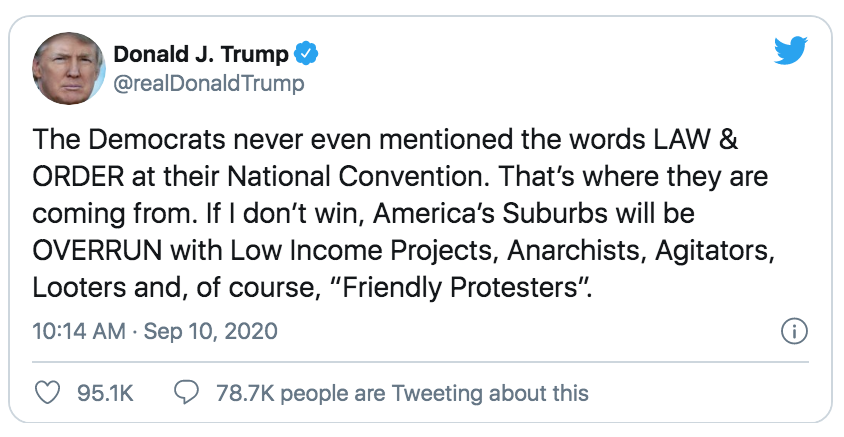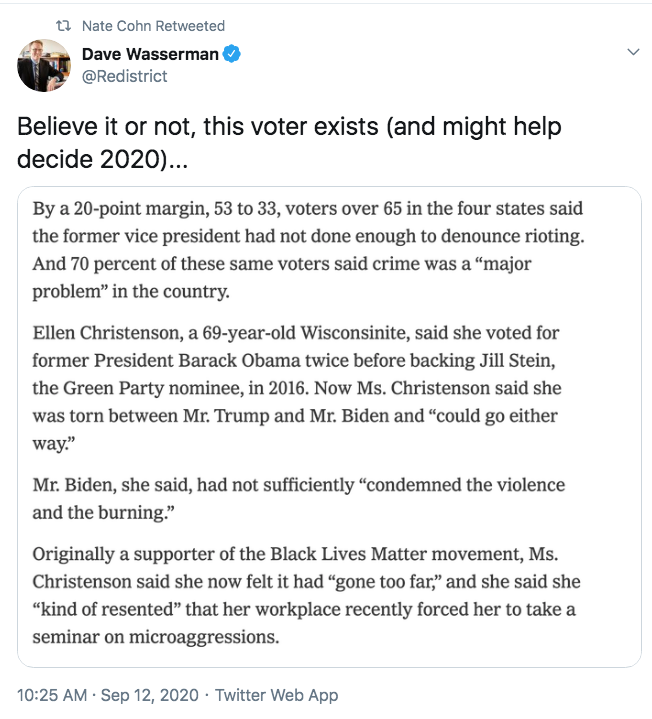We all should have panicked in January
People often say things like “stay calm and don’t panic.” But there are situations where panic is the appropriate response. In retrospect, it would have been far better if Americans had panicked in January and February in response to the Covid-19 threat. Had we done so, it’s likely that more than 100,000 deaths would have been prevented in America, and our economy would have taken a smaller hit (in the long run; last winter it would have taken a bigger hit.) We would have looked more like Australia.
When there’s a pandemic, people panic by engaging in extreme social distancing. They also ignore the experts and wear masks on their faces. But that’s exactly what we all should have done back in February!
Of course this is a jab at Trump’s silly justification for lying—that he was trying to prevent panic. All Trump has done over the last 4 years is try to create nonstop panic about Muslim immigrants, crime, China, and a million other so-called threats. Whatever you think of Trump, preventing panic is not high on his agenda:

Obviously Trump was not trying to prevent panic, he was trying to cover up the problem. He’s been against social distancing, testing, masks, indeed almost everything that works.
On the other hand, this isn’t really about Trump, as the policy failure last winter involved 99% of our society, including bloggers like me. Trump was especially bad for an especially long period, but the entire establishment (both political parties) blew it last winter. We all should have panicked.
Off topic: The GOP campaign is not particularly effective this year, with one exception. The SJWs are creating lots of Trump voters through their misguided cultural revolution:

Wisconsin was the decisive state in 2016, and it likely to pick the winner again this year. And now you have Jill Stein supporters in the badger state trending toward Trump because they are so annoyed by “microaggression” seminars.
I never attended Bentley’s diversity seminars, but several of the people I spoke to who did described it as an awful experience. One was literally in tears by the end of the seminar. When Trump is re-elected in November, the SJWs will be able to take credit. Perhaps it’s all part of their “heightening the contradictions” strategy for world revolution.

